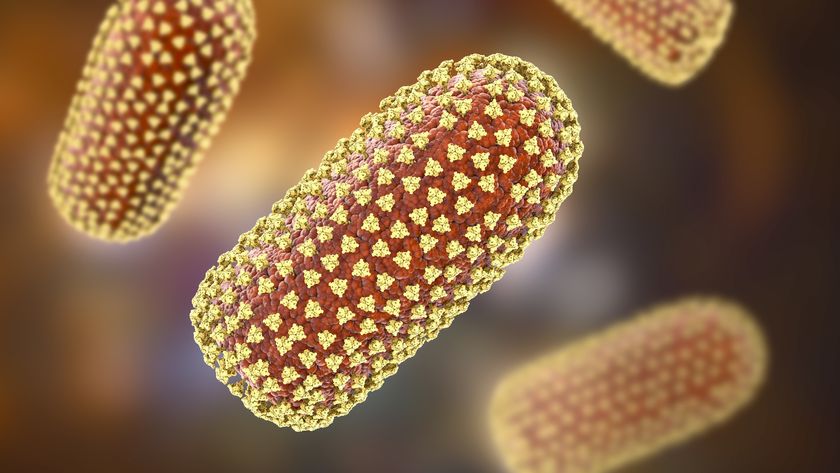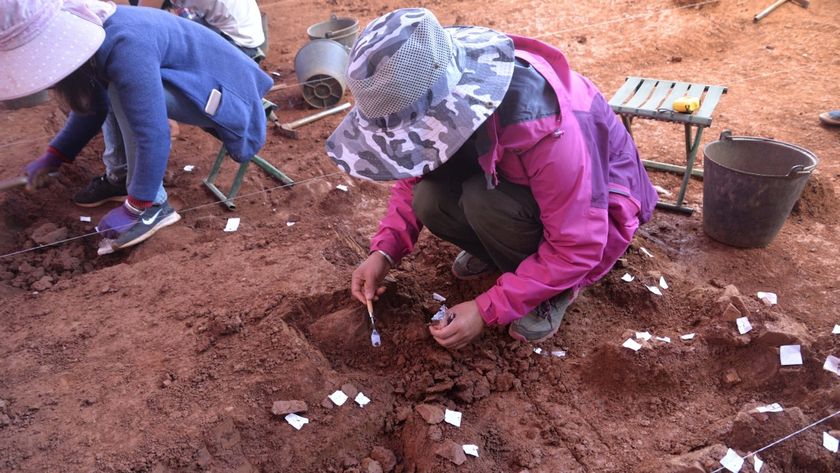CDC warns of Listeria outbreak tied to deli meats and cheeses
Contaminated meat and cheese from deli counters have sickened 16 people in six states.

A Listeria outbreak likely caused by contaminated deli meats and cheeses has sickened at least 16 people in six U.S. states, the Centers for Disease Control and Prevention (CDC) announced Wednesday (Nov. 9). Of those affected, 13 people were hospitalized for the bacterial infection and one died.
These illnesses occurred between April 17, 2021, and Sept. 29, 2022, with four of the 16 cases taking place this year, according to the CDC's timeline. Seven cases were identified in New York state; two each in Illinois and Massachusetts; one each in New Jersey and California; and three in Maryland, where the one reported death occurred. One person caught the infection during pregnancy, resulting in a pregnancy loss, public health officials found.
The outbreak may not be limited to these six states, and the true number of sickened people is "likely higher" than the reported number, according to the CDC statement. Early data point to meats and cheeses from deli counters as the likely source of the outbreak, but "investigators are still working to identify any specific products or delis that may be contaminated with the outbreak strain," the CDC stated.
Listeria monocytogenes, the bacterium behind an illness called listeriosis, can normally be found in soil, water, moist environments, decaying vegetables and dead animals, according to the Food and Drug Administration. The bacteria can be transmitted to people through food products contaminated during harvesting, processing or transport. The bacteria can survive refrigeration and other methods of food preservation.
Related: 28 devastating infectious diseases
Earlier this year, health officials flagged an ice cream brand as the source of a different Listeria outbreak. Past outbreaks have been tied to other foods, including unpasteurized milk, smoked fish, hot dogs and raw vegetables.
Health officials are conducting interviews to determine what foods people ate in the month before they got sick. (Listeriosis symptoms typically appear within two weeks of when someone eats food contaminated with the bacteria, although symptoms can start as early as the same day or as late as 70 days after, according to the CDC.)
Sign up for the Live Science daily newsletter now
Get the world’s most fascinating discoveries delivered straight to your inbox.
Of 12 people interviewed, 11 reported eating meat or cheese from deli counters. Of the seven people sickened in New York, five bought sliced deli meat or cheese from at least one location of NetCost Market, a grocery store chain. In 2021, New York health officials found the same strain of L. monocytogenes in environmental samples at a NetCost Market deli in Brooklyn and in mortadella and ham sliced there. At that time, NetCost Market voluntarily closed and deep-cleaned the Brooklyn deli and then confirmed it to be free of L. monocytogenes.
"Investigators do not believe that NetCost Market delis are the only source of illnesses because some sick people in the outbreak did not shop at a NetCost Market," the recent CDC announcement noted. "A contaminated food likely introduced the outbreak strain of Listeria into delis in multiple states."
The agency is now advising people at high risk of severe listeriosis not to eat meat or cheese from any deli counter unless it is reheated to an internal temperature of 165 degrees Fahrenheit (74 degrees Celsius) or "until steaming hot."
Those who are pregnant, as well as newborns, people ages 65 and older, and people with weakened immune systems are at the highest risk of severe infection, according to the CDC. In older adults and immunocompromised people, the bacteria can infect the bloodstream, causing sepsis, or the brain, causing meningitis or encephalitis. Newborns with listeriosis can develop serious complications that require immediate treatment and can result in lifelong health issues or death. Listeria infections can also cause pregnancy loss or premature delivery.

Nicoletta Lanese is the health channel editor at Live Science and was previously a news editor and staff writer at the site. She holds a graduate certificate in science communication from UC Santa Cruz and degrees in neuroscience and dance from the University of Florida. Her work has appeared in The Scientist, Science News, the Mercury News, Mongabay and Stanford Medicine Magazine, among other outlets. Based in NYC, she also remains heavily involved in dance and performs in local choreographers' work.











